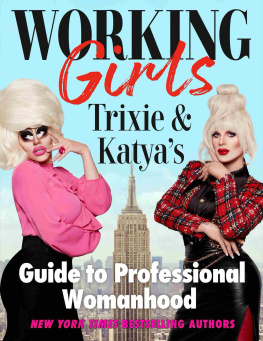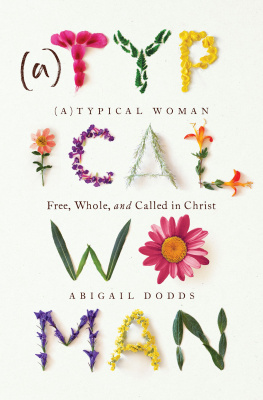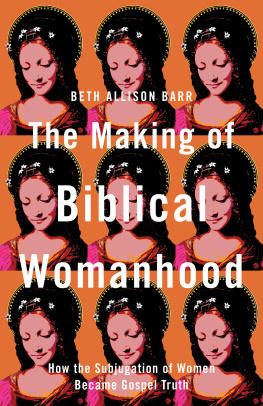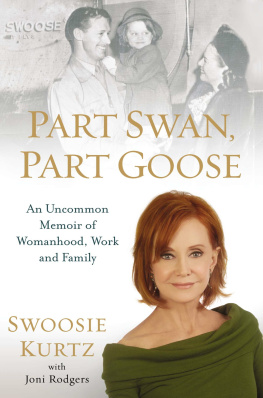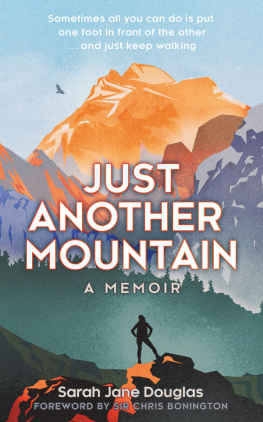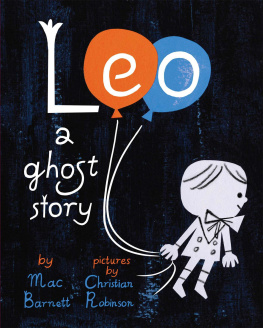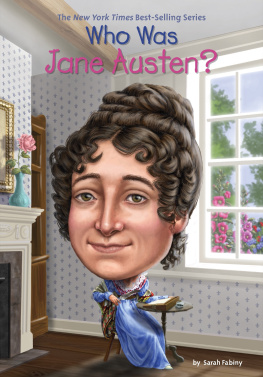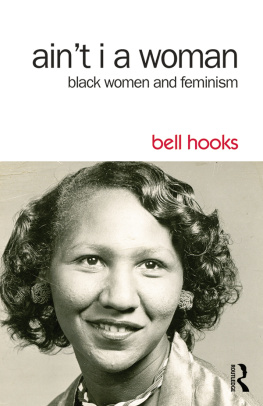



I entered adulthood as two people: the image my era wanted me to be, and the other woman, the hidden one, the one with a body.
Eve Fairbanks
I have no idea what to call this rebirth and yet Im here to name it to feed the new flame
Hinemoana Baker
For Sheila and Pauline and Nikki
Contents
Women without a uterus
M y mother used to wear a purple suit. It had a single button on the boxy jacket that pulled it in at her waist. The skirt was tight and smooth. The first time I remember her wearing the suit was at my cousin s wedding, a lavish church affair in tepoti Dunedin where the bride and groom arrived at the reception by helicopter. But she would also wear it on normal work days. My mum s friends we d bump into them at the local mall or in the aisles of the supermarket, my sister and I hanging off her arm would come up to her, and after making polite conversation say, You look so good, Pauline. They d stand back a bit, cast an eye over her suited body and say, Have you lost some weight?
My mother s a renowned public health academic and has always been an outspoken feminist. I remember one time during high school when she was driving my friend and me into central tautahi Christchurch to go to the movies. He made some sexist joke about a woman s place being in the kitchen. Mum pulled the car over and in a steely tone told my friend to get out. I remember feeling stunned but impressed. When I was born, my mother only had three months maternity leave. After that ended, she would bathe and feed me in the early morning, go to work, come home and feed me again at lunchtime before going all the way back in to work. When my sister and I were school-aged, my mother worked for a university medical school during the day while she wrote her PhD at night.
One school holiday, all of us crammed into a motel room in a Te Waipounamu South Island town, my father told my mother that she was too fat for him to love her any more. I remember spittle at the corner of my father s mouth and the anguish on my mother s face. I remember staring hard at the squiggly-green-patterned wallpaper of the room. I wasnt able to sleep till late that night, my sad little body deep in the bed.
Those motels always had a pool that the kids (my younger sister and I took the other guests as our immediate best friends) would splash in and out of all day. We would spread out our towels beside the pool and bake in our neon swimsuits. Somewhere in the motel grounds there would be a rusted swing set and a television room where the adults could socialise and drink shandies. I loved these holidays, even with the strain between my parents. They were good people in a hard situation that, as a kid, I couldnt understand. What I did understand was that a few months after the holiday my mother had lost weight and bought a purple suit. That people liked her better that way. That she was better.
Ive been thinking about womanhood about what it means to me, and what Ive been taught since I had a hysterectomy a few years back. Twelve years earlier I d had surgery to remove precancerous cells from my cervix. I knew that if the cells returned I might need surgery again, but I never expected a hysterectomy.
The gynaecologist gave me the news as we sat in his spacious office, light streaming in through the large windows. The air punched into my chest as he told me I needed to have my uterus and fallopian tubes removed. They d found some new abnormal cells on my cervix. This type of cancer produced skip lesions, he said. There could be abnormal cells and then healthy ones, but then other abnormal cells could be hidden elsewhere. If he simply took out the abnormal cervical cells he couldnt guarantee they hadnt skipped to my uterus. An image came to me of standing on the pebbly bank of a river and teaching my son, Sam, how to skip a stone. Of how lightly the flat grey mass skimmed across the water. I was forty. I didnt want any more children, so full removal was the best option. He would also have a look at my ovaries during the surgery to see if they needed to come out too.
I felt numb. The gynaecologist was sitting at his desk with official-looking papers spread before him. I was in a low squishy armchair and he felt high above me. His legs were spread apart, one elbow rested on each knee as he told me the news. He cracked a few jokes as he talked. He was wearing a grey suit with a white shirt casually unbuttoned.
At the end of the appointment he printed out a stack of medical literature for me to read. These are written for doctors, so let me know if you have trouble, he said. He leaned forward and said, Dont worry, the operation wont make you less of a woman.
I think most women will recognise this moment a man who wants to be kind but who has few narratives to work with: the male saviour; the expert. It s my experience that this man does not do well when confronted with a self-possessed woman. Sitting in his office I told him that I was more than competent to read the literature, and that I was fully aware of what made up my womanhood. Confusion flickered across his face and he laughed a little. He smoothed his suit jacket and then continued to reassure me.
In her celebrated blog on why saggy boobs matter, Chidera Eggerue writes, There is literally no wrong way to be a woman. There is literally no wrong way to have a body as long as your body is functioning well enough to keep you alive. As a child, I was always the first to dive into a cold swimming pool, the water a shock on my skin. I d hold my breath, swim down and place my toes on the blue-tiled bottom, my body pure joy in the silence. That day, I wish I d told the gynaecologist that to school me on womanhood was to take something that was not his. I wish I d climbed into bed with my mum that night years ago at the motel and told her she was loved.
/
A month after I saw the gynaecologist, my husband Jim dropped me at a hospital in Te Whanganui-a-Tara Wellington, the city where we live. I followed a nurse as she led me down the long corridors to my room. A single bed and a comfortable armchair. Fluorescent lighting and beige walls. A small en suite. A private hospital room. She bustled around as I stripped behind a curtain and pulled on a blue hospital gown. She had me produce a urine sample, gave me the dinner menu and left me sitting on the bed.
Jim and I couldnt afford to pay for me to have the operation privately. We barely had enough leave to take time off for my recovery, let alone savings to pay for private surgery. But my parents had called a few days after the news about the hysterectomy and offered to pay. They gave me some good reasons why they should: it would mean the surgery could be done sooner; they hoped private would mean better results and a faster recovery; this sort of thing is what their savings were for. They knew I was scared and didnt want me to suffer the anxiety of long public hospital waiting lists. They wanted me to be safe and well. I felt lightheaded at how much the operation was costing my parents. I felt ashamed and undeserving to have the choice. But mostly I felt grateful.
Waiting in the hospital room I read
Next page


